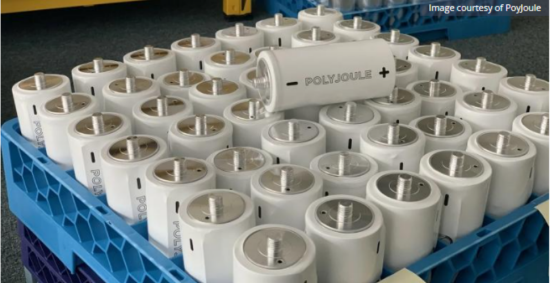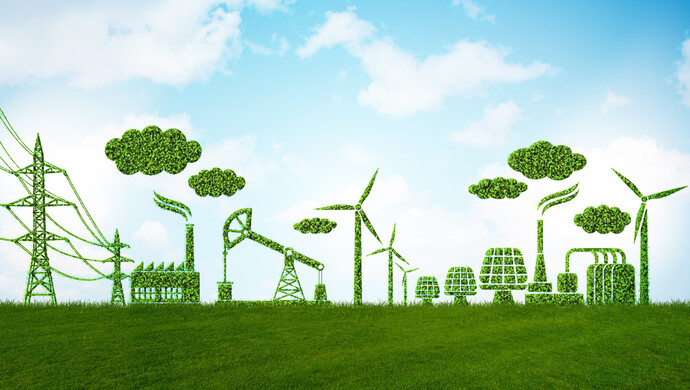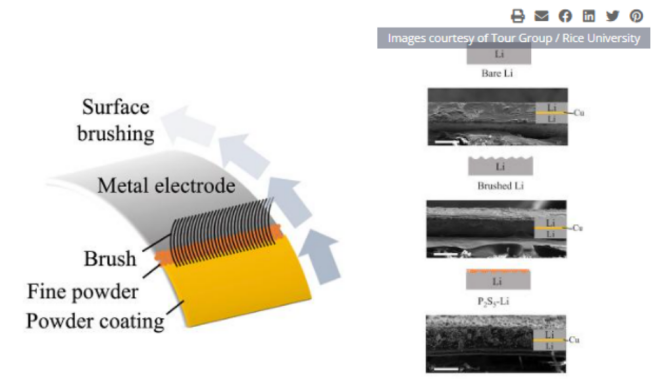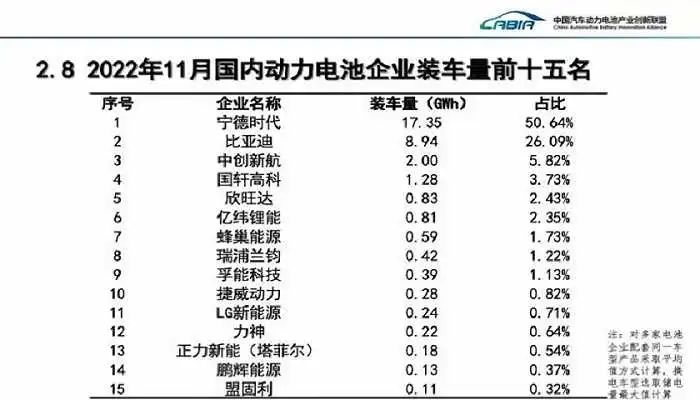
polyjoule cylindrical polymer tray.
the transition from metal based batteries may pave the way for renewable energy storage systems.
with the transformation of coal and fossil fuels, wind power plants and solar power plants are emerging globally. such alternatives are mainly complementary. because of their natural intermittency, they can only provide a small part of power for the grid. excess supply from windmills and solar cells needs to be stored in a way that, for example, can be easily connected to the grid when needed, usually during peak power consumption.
excess energy is usually stored in large lithium-ion batteries, but this approach raises concerns about sustainability. polyjoule, a boston based startup, has proposed a new solution for large-scale battery energy storage systems that uniquely does not require metal. in this article, we will discuss the energy storage system, the advantages of polyjoule system, and the potential impact on the industry.
energy storage system
in the process of pursuing net zero emission, the battery energy storage system (bess) will become a very valuable asset to promote the use of renewable energy. a major challenge faced by renewable energy such as solar energy and wind energy is their discontinuous output: without gusts or clouds, energy cannot be generated. this is the important position of battery energy storage system, which stores excess energy in high production period and then uses it in low production period. in this way, with the gradual elimination of fossil fuel and coal power plants, the storage of renewable energy can effectively maintain the reliability and stability of the power grid.
in addition to large power grids, battery energy storage systems have commercial and residential applications. through advanced software algorithms, the system can choose when to store and release energy. releasing energy during high demand period is called peak shaving. this process reduces the amount of energy purchased and reduces the pressure on the grid. therefore, the possibility of power surge is low, and the reliability of local power grid is improved. even in addition to the grid, energy storage may be more important. for example, remote areas and many parts of developing countries rely on decentralized microgrids to provide power. limited roads and long distance energy transport make renewable a reasonable choice. these remote areas mean that robust storage systems are critical to meeting their needs.
plastic instead of metal
however, one challenge facing the development of battery energy storage systems is that the batteries required for grid energy storage are much larger than those found in electric vehicles. this means that they need more lithium, which is a high demand element in the automotive industry and many other industries. for this reason, it is estimated that in 2030, the demand for electric vehicles will increase 10 times, and lithium and other battery metals will also increase accordingly. to completely avoid this challenge, polyjoule has developed batteries based on plastics rather than metals. from the supply chain perspective, one of the main advantages of plastic based batteries is that the polymers used can be manufactured from common industrial raw materials. the result is that the materials are more abundant and the pressure on the supply chain is finally reduced.
polymer batteries also provide safety improvements that exceed current industry standards. although lithium ion batteries contain flammable liquid electrolytes that facilitate ion transfer, the liquid required for conducting polymer batteries is much more inert. the test shows that any degree of overcharge, damage or short circuit will not cause polyjoule's products to lose control of heat. no flammability risk means no expensive temperature control system, which is safer for the end user.
in addition, polyjoule batteries have a nominal operating temperature range of - 40 to 50 degrees, while lithium ion batteries have an average operating temperature range of - 20 to 50 degrees. considering the application of battery energy storage system, it may face extreme hot or cold weather in remote areas. it is a great attraction for polymer batteries to operate without being affected under adverse conditions and without climate control system. in addition, polyjoule estimates that the life of conductive polymer batteries can last more than 20 years or 12000 cycles, more than twice the life of lithium-ion batteries.
ascending stage
we are experiencing the vigorous development of global renewable energy. the target deadlines range from 2030 to 2050, but the goal is the same: carbon neutrality using alternative energy sources. battery technology has become the focus, especially lithium ion batteries. however, all industries and applications that use the same battery will have huge demand and pressure on raw materials. diversified battery technologies, such as conductive polymers, may help speed up planning and turn carbon neutrality from ideal to reality.
china chemical and physical power industry association




